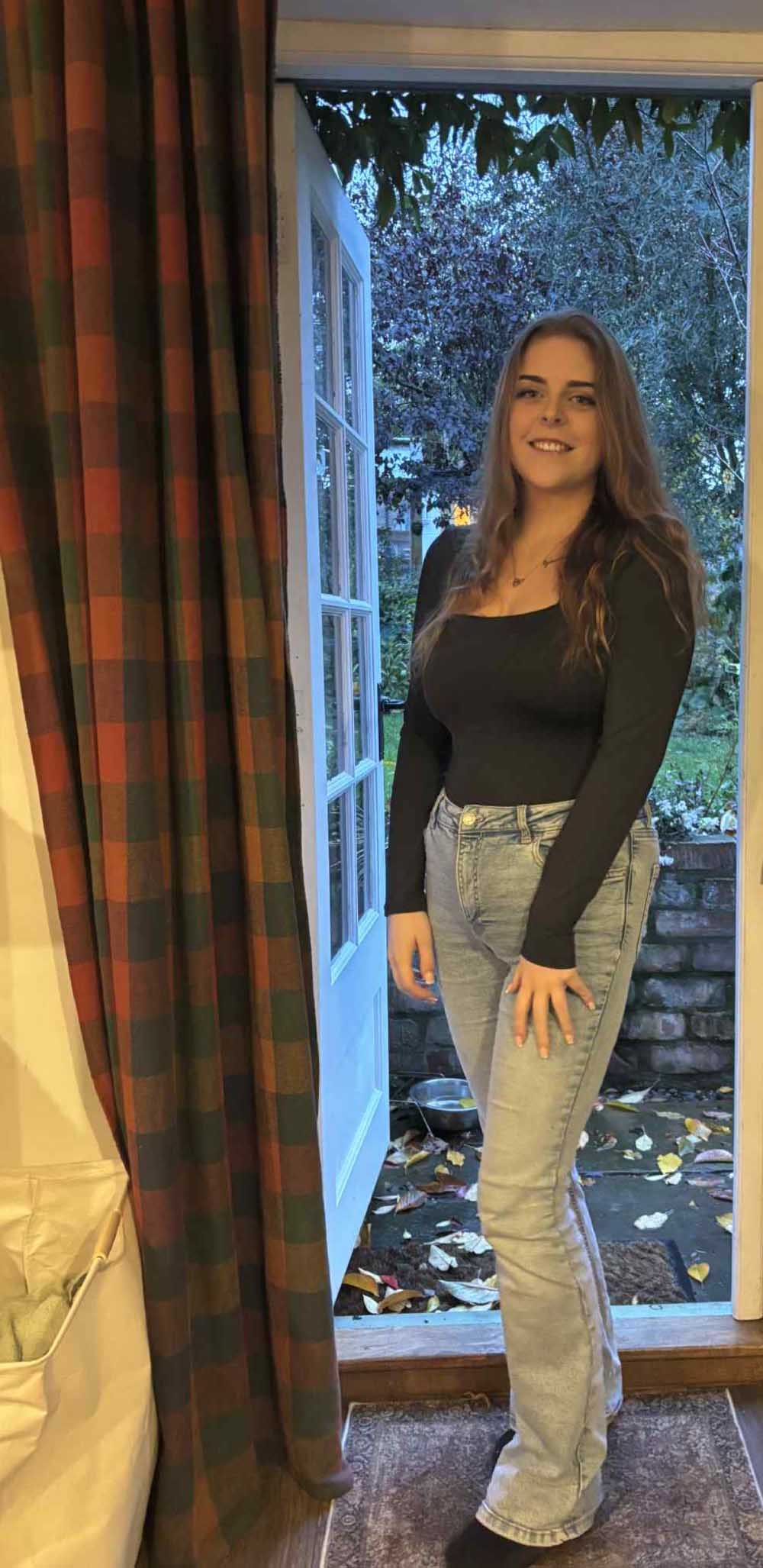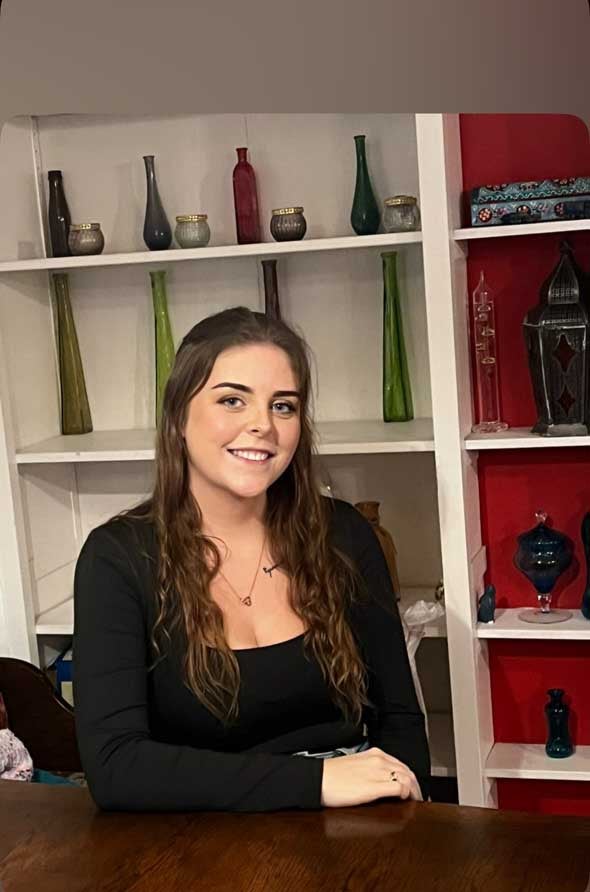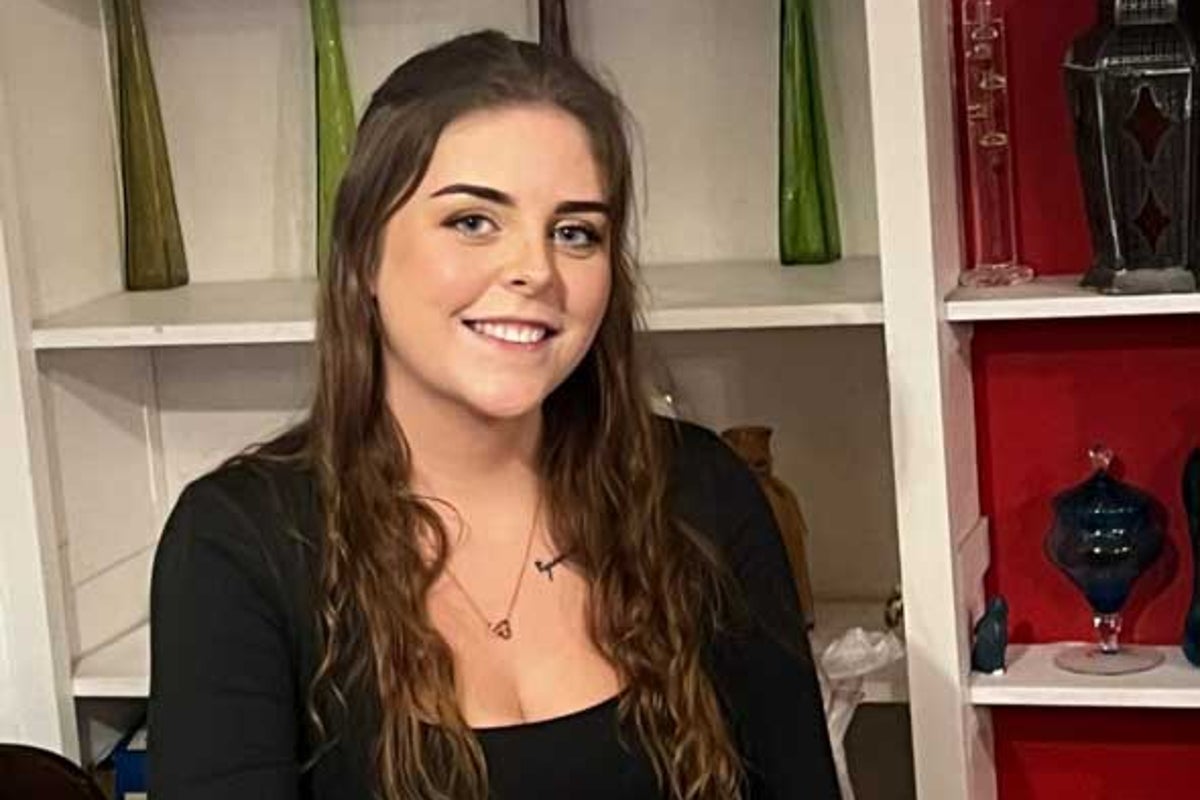A woman diagnosed with bowel cancer after 13 GP visits and A&E attendance was repeatedly told she was too young for the disease.
Milli Tanner, now 23, was initially informed her symptoms were likely piles, irritable bowel syndrome (IBS), or period problems, despite having a potentially deadly tumour.
Her health concerns began at 19 in June 2021, presenting with stomach pains, lower back pain, and blood in her stool.
“They said that maybe I’d had a night out, had too much to drink, and that was irritating my stomach,” she said.
“But the bleeding carried on, as well as the abdominal pain … it was continuous.
“There were discussions at the GP, such as: could it be my periods? Could it be this, could it be that?
“And I said: ‘No, usually with a period, it’s maybe you have a week every month with a bit of abdominal pain, and you obviously bleed, and that’s that, but you don’t tend to lose blood through your back passage.’
“I continued going to the GP. They referred me for an ultrasound to check for gallstones but it wasn’t that, I had a session with a physiotherapist for the back pain and they said that they couldn’t see anything wrong at all.
“And then it was pretty much just put down to piles.
“By this point, I was tired as well all the time, and I was working full-time in a pub.
“They looked at that as, ‘that’s probably why you’re tired, you’re working long shifts and late nights’.”
Between June 2021 to November 2023, Ms Tanner said she had 13 appointments with a GP, went to A&E and had a phone call with NHS 111.

“I was also showing pictures of the amount of blood I was having – every time I went to the toilet I was bleeding,” she said.
“I said: ‘It’s not a little bit of blood on the tissue, this is clots of blood and filling the toilet bowl up.’”
At one point, during a visit to A&E, Ms Tanner was told to go back to her GP.
“I asked for a second opinion. The doctor come back into the room, said: ‘Right, I’ve just spoken to another A&E department. You’re just too young. Are you happy?’”
Ms Tanner eventually ordered herself a faecal immunochemical test (FIT) online, which looks for tiny traces of blood in the stool that could indicate bowel cancer.
The test was positive and Ms Tanner took her results to her GP.
However, it was several more months before the GP ordered a FIT test on the NHS.

Ms Tanner said: “The GP did put through a referral for a colonoscopy but I had a phone call to say it was a 60-week wait.
“They were following the NHS guidelines, and because I was under a certain age, it apparently couldn’t be put through as urgent until they did their own FIT test.
“Once the GP had ordered their own FIT test and it was positive, they were able to put it through as urgent.”
By this point, Ms Tanner said she knew she had bowel cancer.
“I knew it was going to be bowel cancer. I knew deep down exactly what it was,” she said.
“I’d done my own research. It was frustrating. I felt like I was going crazy.”
Ms Tanner, who works as a cleaner and is from Evesham, Worcestershire, was diagnosed with bowel cancer in November 2023 following the urgent colonoscopy.
She said: “I saw the mass straight away. I saw it on the screen, and I just said: ‘What’s that?’”
“And the doctor said: ‘It’s a tumour.’
“I said: ‘Is it cancer?’ And she said: ‘I’m really sorry.’”
By this point, the cancer had spread to Ms Tanner’s lymph nodes and was stage III.
Bowel Cancer symptoms
According to the NHS
Symptoms of bowel cancer may include:
- changes in your poo, such as having softer poo, diarrhoea or constipation that is not usual for you
- needing to poo more or less often than usual for you
- blood in your poo, which may look red or black
- bleeding from your bottom
- often feeling like you need to poo, even if you’ve just been to the toilet
- tummy pain
- a lump in your tummy
- bloating
- losing weight without trying
- feeling very tired or short of breath – these are signs of anaemia, which can be caused by bowel cancer
Ms Tanner decided to have her eggs collected owing to the risk cancer treatment will make her infertile.
She also had chemotherapy and radiotherapy, surgery, and has been fitted with a permanent stoma.
While she has been left perimenopausal, Ms Tanner said her most recent CT scan and colonoscopy showed no signs of cancer.
She now wants to raise awareness of cancer among young people.
She said: “It was such a massive issue and stress getting diagnosed. I had at least 20 health appointments, including 13 GP appointments and a visit to A&E where I was told I was too young to have cancer.
“I had always been maternal, so it was heartbreaking to learn I might be infertile.
“I’d say to people: you know your own body better than anybody else does.
“If it feels wrong, then keep going back until you find what is wrong.”
Amy Harding, director of services and impact at the Teenage Cancer Trust, said: “Milli’s story, although extreme, is sadly not unique.
“We know from recent evidence and through the young people that we support, that far too often the path to a cancer diagnosis is challenging, traumatic and too long for young people who face delays to diagnosis.
“The National Cancer Plan for England has the potential to create the vital changes needed for young people with cancer.
“However, it must include strong and targeted measures, including empowering primary care professionals to spot the signs of cancer in young people.
“Although cancer is rare in this group, it shouldn’t be off the table just because of patient age.”
According to Cancer Research UK, rates of bowel cancer in teenagers and young people up to the age of 24 have increased by 74% since the early 1990s.
The Department of Health has been contacted for comment.





